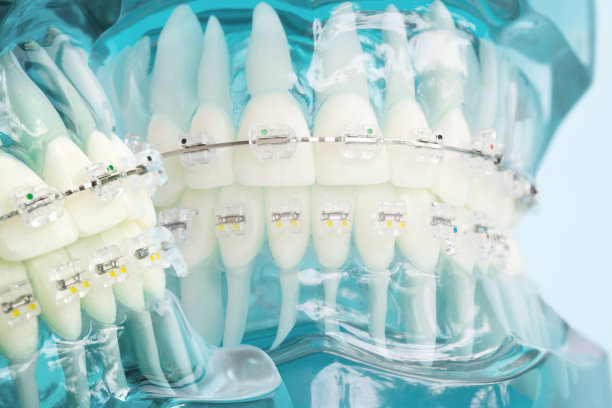Summary: Dental filling procedures are essential for restoring teeth affected by decay or damage. This article offers essential tips and precautions for a successful filling experience and highlights optimal oral health maintenance practices. Emphasizing the importance of choosing a qualified dentist, understanding the procedure, caring for your dental fillings, and maintaining overall oral hygiene, this article aims to enhance patients confidence and comfort during dental visits. By following these guidelines, patients can achieve better outcomes and prevent potential complications in the future.
1. Choosing a Qualified Dentist is Crucial

When seeking dental filling procedures, selecting a qualified dentist is of paramount importance. Its advisable to research dentists in your area, focusing on their qualifications, experience, and patient reviews. A dentist who specializes in restorative procedures can provide insight into the best materials and techniques suitable for your needs.
Consulting with your dentist before the procedure can set the stage for a successful filling. During this consultation, patients should feel comfortable asking questions related to the procedure, materials used, and any potential risks involved. A thorough understanding fosters trust and ensures that patients have realistic expectations.
Additionally, consider seeking recommendations from family and friends. Personal testimonials can guide you to trustworthy practitioners and reduce anxiety about the dental process. Relying on referrals creates a sense of assurance, ultimately leading to a more positive dental experience.
2. Understanding the Dental Filling Procedure
Knowledge about the dental filling procedure itself can significantly alleviate patient anxiety. A filling typically involves the dentist numbing the area around the affected tooth, removing decay, and sealing the area with filling material. Understanding each step helps to demystify the process.
Patients should also become familiar with the various materials available for fillings, such as composite resin, amalgam, and porcelain. Each type has its own advantages and disadvantages regarding aesthetics, durability, and cost. Discussing these options with your dentist allows you to make an informed decision that aligns with your preferences.
Furthermore, its crucial to understand what to expect during and after the procedure. Post-filling care, sensitivity to hot or cold temperatures, and potential side effects should be discussed. Knowing what is typical can help you identify any abnormal reactions and address them promptly with your dentist.
3. Caring for Your Dental Fillings After the Procedure
Post-procedure care is essential for the longevity of dental fillings and your overall oral health. Initially, it鈥檚 important to follow your dentists aftercare instructions closely, which may include avoiding eating for a specific duration or avoiding certain foods that could damage the filling.
Maintaining good oral hygiene is critical. Regular brushing and flossing help to prevent decay around the filling and ensure that your gums remain healthy. Its advisable to use a soft-bristled toothbrush and fluoride toothpaste to protect your teeth and fillings.
Lastly, regular dental check-ups and cleanings contribute to the longevity of dental fillings. Your dentist can monitor the condition of the fillings and identify potential issues before they escalate. Scheduling consistent appointments ensures proactive care and helps maintain optimal oral health.
4. Maintaining Overall Oral Health for Longevity
Optimal oral health maintenance extends beyond just caring for fillings. It involves adopting a balanced diet that supports dental health, such as consuming calcium-rich foods and avoiding sugary snacks. When you maintain a nutritious diet, you contribute to the strength and resilience of your teeth.
Staying hydrated by drinking plenty of water throughout the day is also crucial. Water helps wash away food particles and bacteria, reducing the risk of cavities. Its especially vital to rinse your mouth after consuming acidic or sugary foods to neutralize harmful substances.
Lastly, managing habits like teeth grinding or nail-biting can significantly affect the integrity of dental fillings. If these issues are a concern, discussing them with your dentist could lead to preventive solutions such as custom night guards. Being proactive about habits will enhance the longevity and overall health of your dental fillings.
Summary:
In conclusion, successful dental filling procedures are rooted in informed decision-making鈥攆rom choosing a skilled dentist to understanding the procedure and practicing diligent aftercare. Additionally, maintaining overall oral health through proper diet and habits is essential for ensuring the longevity of your fillings. When patients invest time in these areas, they can enjoy improved dental outcomes and a confident smile.
This article is compiled by Vickong Dental and the content is for reference only.
Vickong Dental
Vickong Dental is a large medical group established in Hong Kong in 2008 by professors from well-known medical universities in Guangdong and Hong Kong, as well as medical doctors from key national '985' universities (including Master's supervisors and senior professors). The chain of branches brings together expert dentists with PhDs and Master's degrees from Hong Kong and Mainland China, committed to providing high-quality dental treatment.
"Vickong Dental Practices the University Motto of 'Healing and Serving Society,' with a Stable Operation for Sixteen Years. It Has Been honored with Hong Kong Enterprise Leaders's Choice,' and is a Global Trusted Implant Center for the Nobel Implant System. Recommended by Hong Kong Metro Broadcast and Guangdong Television, it Serves Customers from Over Thirty Countries and Regions, Gaining the Trust and Favor of Citizens from the Guangdong-Hong Kong-Macau Greater Bay Area and Surrounding Cities.

Thousands of customers' unanimous praise
The most recognized and highly recommended dental service by customers in the Guangdong-Hong Kong-Macau Greater Bay Area
We Ensure You Receive Detailed Care and Attention Here
Hong Kong standards, Shenzhen prices, Your Trusted English-speaking dentists

Vickong Dental Medical-Grade Instrument Disinfection Process
Vickong Dental Medical-Grade Instrument Disinfection Process

Vickong Dental Chain: A Warm and Comfortable Environment for Treatment






Appointment Hours

Q&A
Why choose Vickong Dental?
Vickong Dental practices the university motto 「Medicine to Benefit Society」, with each branch bringing together highly qualified dentists with doctoral and master’s degrees from Hong Kong and the Mainland, and has maintained seventeen years of steady operation。Recipient of 「2024 Hong Kong Enterprise Leaders Brand」, 「2025 Hong Kong Enterprise Leaders Brand」, a Nobel Biocare Global Trusted Implant Center, and a brand recommended by Metro Radio Hong Kong and Guangdong TV。
To date, we have served customers from more than thirty countries and regions,earning exceptionally high word-of-mouth recognition and trusted recommendations from residents across the Guangdong-Hong Kong-Macao Greater Bay Area and surrounding cities
We have eight major branches in Zhuhai、Shenzhen,and a consultation and service assurance center in Hong Kong,so you can book a free consultation at any time for any questions,which is very reassuring.
If I do not accept the quotation after the CT scan, will I be charged??
No! As long as the actual treatment has not started, you will not be charged any fees.
Will there be any additional charges during the treatment process?
No, there won’t be any additional charges. Before treatment begins, we will clearly explain the treatment plan and its corresponding fees. Only after the patient agrees and signs the consent form will we proceed with the dental service.
Can I pay in Hong Kong dollars?
Yes. Vickong Dental accepts payment in Hong Kong dollars. The amount will be converted based on the exchange rate of the day, and the applicable rate will be clearly communicated to you in advance.
Can I reschedule my appointment at any time?
Yes. Please contact us via **WeChat** or **WhatsApp** as early as possible, providing your original appointment time and details, along with your preferred new date and time slot for rescheduling.













